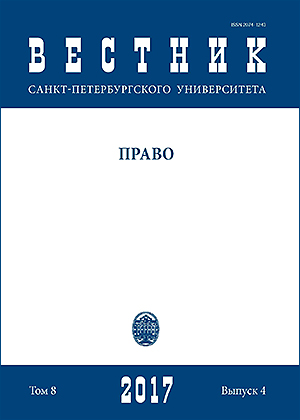Marine spatial planning as an instrument of sustainable development of the seas
DOI:
https://doi.org/10.21638/11701/spbu14.2017.409Abstract
Marine Spatial Planning (MSP) is a progressive instrument for regulation of the numerous types of use of marine areas. In principle, it is understood as “a marine equivalent to terrestrial spatial planning which has been used to rationally develop, for example, urban areas, but also to protect environmental and cultural values”. Many countries such as Australia, Belgium, Germany or the Netherlands already exercise Marine Spatial Planning. In Russia, however, the development of this instrument is presently in the initial phase. Even if the Russian Federation has begun drawing up a Federal Law on Maritime Spatial Planning in 2014, the theoretical concept of MSP is not yet widespread amongst Russian scholars. The current interruption of work on the law seems to put the topic into the background of the legislative agenda. However, in the light of global sustainable development, it still appears important to put the legislative process forward. In this context, the following article will give an overview about the meaning of Marine Spatial Planning and compare the legal and methodological aspects of MSP in Russia and Germany. The German experience in working out and implementing marine spatial plans can serve as an orientation for the establishment of a Marine Spatial Planning System in Russia. Finally, the article will summarize, how planning of marine areas — not exclusively in Russia and Germany — can contribute to a sustainable development of the oceans, seas and marine resources. Refs 3. Fig. 1.
Keywords:
marine spatial planning, sustainable development, Russian Federation, Germany, spatial planning, environmental protection
Downloads
References
Downloads
Published
How to Cite
Issue
Section
License
Articles of "Vestnik of Saint Petersburg University. Law" are open access distributed under the terms of the License Agreement with Saint Petersburg State University, which permits to the authors unrestricted distribution and self-archiving free of charge.






